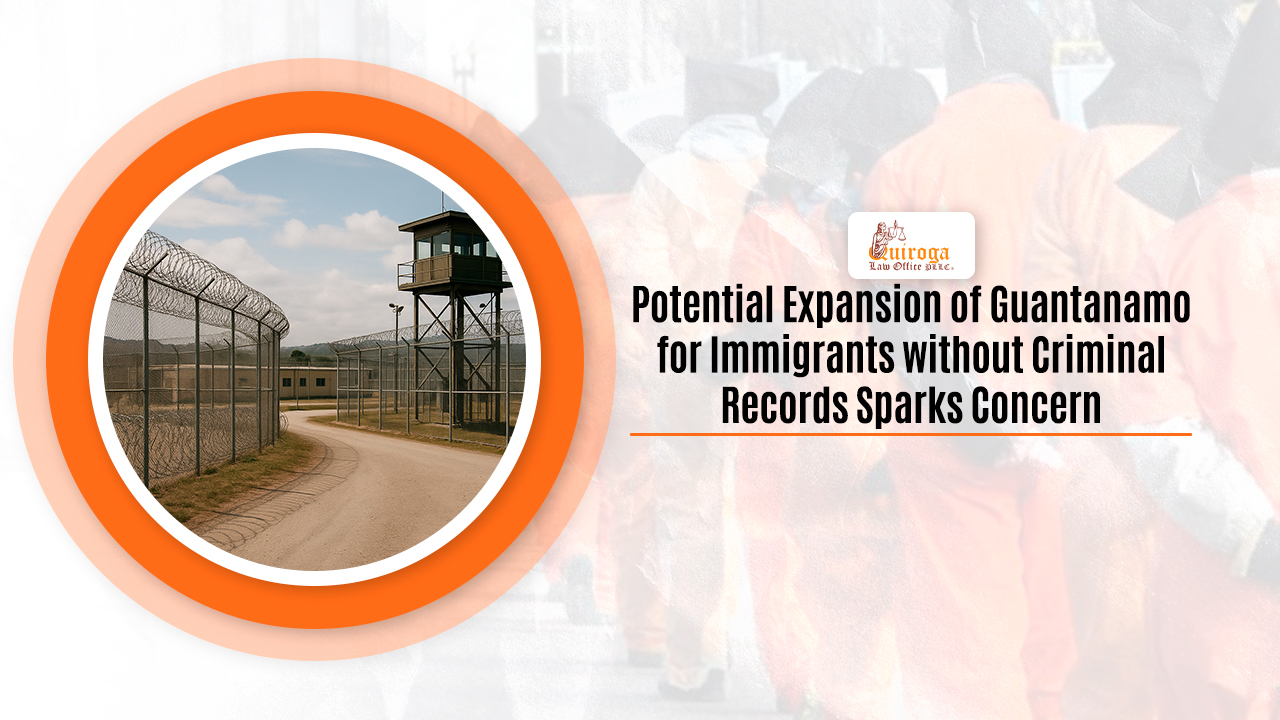President Donald Trump’s recent decision to expand the detention facility at Guantanamo Bay to house up to 30,000 migrants, including those with no criminal record, has sparked a wave of concern and debate in the United States. This move not only raises legal questions but also raises concerns about the human rights and social implications of such a move.
Legal Implications of Detaining Immigrants with No Criminal Records at Guantanamo
The relocation of migrants with no criminal record to a military installation outside the continental United States raises serious questions about the legality of this procedure. Under the Immigration and Nationality Act, there are specific procedures for the detention of immigrants. However, transferring individuals with no criminal record to a base like Guantanamo could violate fundamental constitutional rights.
The location of the detention facility at Guantanamo, a facility outside the boundaries of U.S. territory, raises questions about access to courts and protections under U.S. law, including due process provisions and access to legal counsel.
Concerns about Human Rights and Due Process
Detention in an offshore military facility could limit migrants’ access to legal assistance and fair judicial proceedings. In addition, Guantanamo’s history of detaining individuals without trial raises concerns about potential human rights violations.
Human rights organizations and immigrant advocates have expressed alarm at the move, arguing that detaining migrants with no criminal record in a facility known for its controversial treatment of detainees could constitute an abuse of power and a violation of international human rights standards.
Social and Political Consequences of the Measure
Beyond the legal and human rights implications, the decision to expand detention at Guantanamo has significant social and political implications. The move could exacerbate tensions in the immigration debate in the United States and affect public perceptions of the treatment of migrants.
Furthermore, detaining individuals with no criminal record at a military facility could set a worrying precedent for future immigration policies. This could lead to further militarization of immigration management and an erosion of legal protections for migrants.
Recommendations for Migrants and Their Families
If you or someone you know is in a detention situation or facing possible immigration proceedings, it is crucial to take the following steps:
- Seek Immediate Legal Advice: Consult with an experienced immigration attorney to understand your legal rights and options.
- Maintain Detailed Records: Document all interactions with immigration authorities and keep copies of all relevant documents.
- Know Your Rights: Familiarize yourself with your legal rights, including the right to an attorney and the right to remain silent until your legal representative is present.
- Establish an Emergency Plan: Develop a plan that includes emergency contacts and provisions for caring for dependent family members in the event of detention.
It is critical to be informed and prepared to navigate the complex U.S. immigration system. Proper legal advice can make a significant difference in the outcome of your case.
To consider
The expansion of detention facilities at Guantanamo Bay to include migrants without criminal records raises serious legal, human rights, and social concerns. It is essential that immigration policies respect the fundamental rights of all individuals and that transparency and accountability be maintained in the implementation of such policies.
If you are an immigrant who is experiencing this type of situation or have a family member in a similar circumstance, you can contact us to offer you the legal support you need. Request a consultation by clicking here or call us at (509) 927-3840.
If you want to know more about this topic, we invite you to watch the video in which immigration lawyer Héctor Quiroga explains more.



